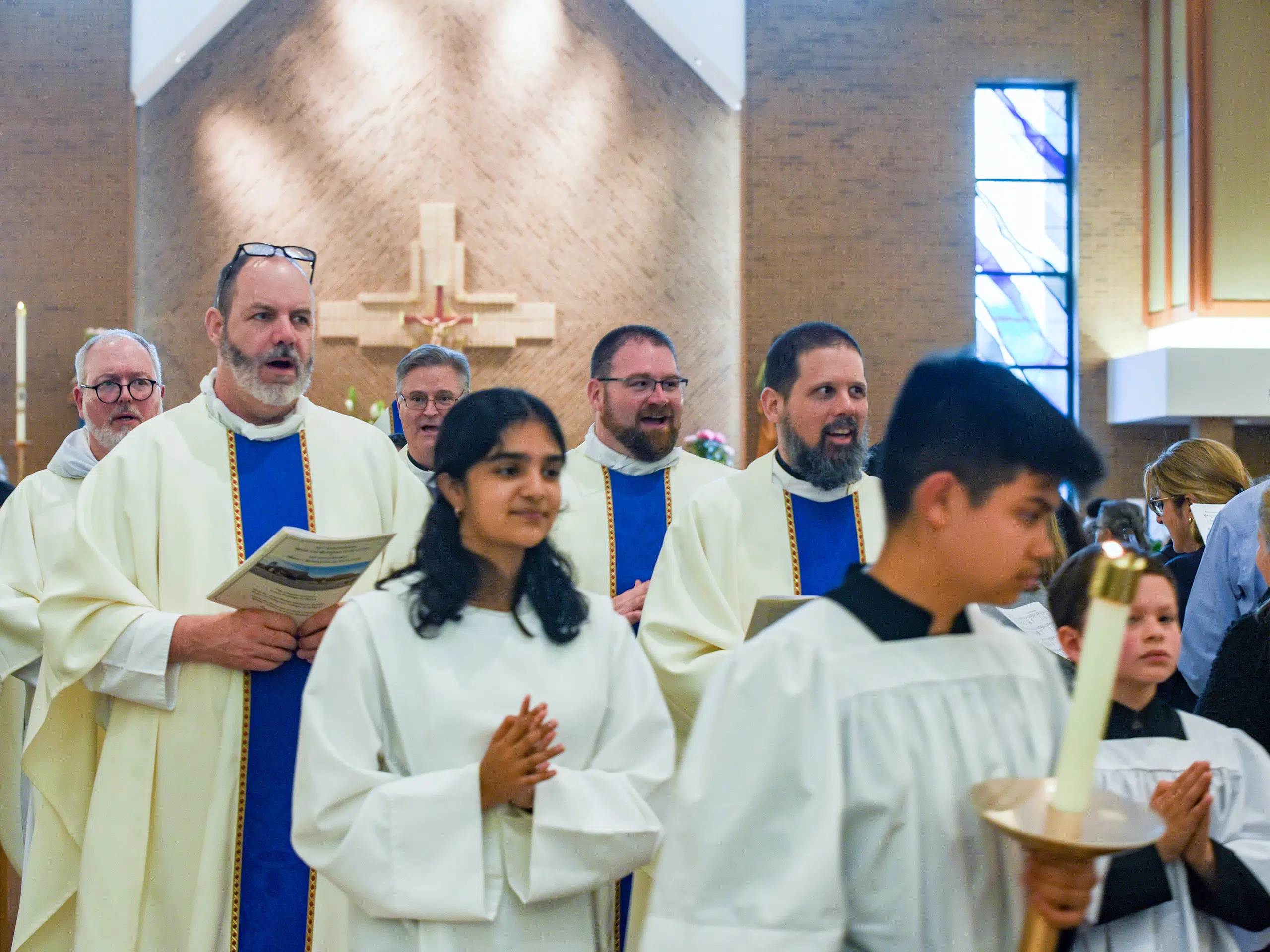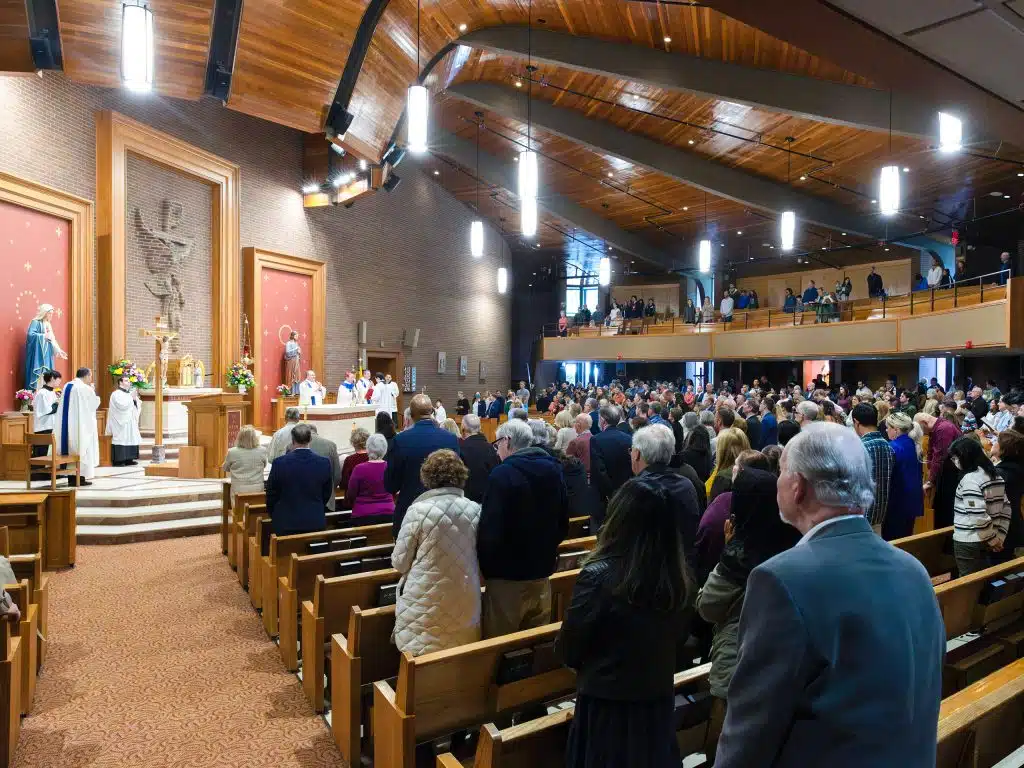Priests serve Jesus Christ and His Church in a variety of ways. The vast majority of diocesan priests, at one time or another, and some priests who belong to institutes of consecrated life and societies of apostolic life will be assigned to a parish. Some will be pastors, while others will be parochial vicars, known in the past as associate pastors.
With some priests taking up new assignments in the Diocese of Arlington, we ask: what are the roles of pastors and parochial vicars?
Both the Code of Canon Law (Canons 515-552) and diocesan regulations outline the duties and rights of pastors and parochial vicars.
A pastor is a priest who, under the authority of the diocesan bishop, exercises the pastoral care of a parish (and, in some cases, more than one parish) by carrying out the functions of teaching, sanctifying and governing. He is joined by any parochial vicars and deacons present as well as by the members of the parish, particularly the parish pastoral council. The pastor is to believe the church’s teachings, pray fervently, live a virtuous life and possess zeal for souls.
A pastor is bound to preach the Word of God to those living in his parish and to instruct the faithful in the Catholic faith by way of his homilies and teaching. He spiritually supports spouses and parents, and he is to have a heart for the religious education of youths, asking them to consider a vocation to the priesthood or the consecrated life. He is to reach out to those who are poor, suffering and dying and to be mindful of non-Catholics and those who no longer practice the Catholic faith. The pastor ensures that the sacraments, especially the Eucharist and penance, are available to his people, whom he seeks to know well. He invites his flock to read sacred Scripture, study the Catechism of the Catholic Church, read Catholic spiritual books and invoke the intercession of the Blessed Virgin Mary and the saints.
The pastor also visits his families, encouraging them and, if necessary, even challenging them. Those who are sick and elderly, especially those who are close to death, occupy a special place in his concerns. The pastor provides the sacrament of the anointing of the sick along with viaticum, one’s final holy Communion before death, and the apostolic pardon, the remission of temporal punishment due to sin that otherwise would need to be remitted in purgatory. And he administers the sacrament of Confirmation to those who are in danger of death.
In addition to offering Mass, which he is obliged to celebrate for his parishioners each Sunday and holy day of obligation, the pastor administers the sacrament of baptism, prepares couples for, and assists at, their weddings and celebrates funerals.
Additionally, the pastor, who generally lives in a rectory near the church, represents the parish in all financial matters according to church law. He is aided by the parish finance council. If the parish has a Catholic school, then the pastor has a key position in working with the administrators, faculty, parents and school board in ensuring a solid Catholic education for the students.
The pastor will be away from his parish or parishes for gatherings with the bishop and the clergy, his annual retreat and vacation.
A parochial vicar is assigned by the bishop to cooperate with the pastor in carrying out the pastoral ministry for the parish and generally does what a pastor does. The bishop and the pastor may designate certain tasks to the parochial vicar to fulfill. But if no specific duties are identified, then the parochial vicar participates with his pastor in whatever must be accomplished.
If the pastor is absent, then the parochial vicar, who usually lives with the pastor in the rectory, substitutes for him, especially in the celebration of the Mass on Sundays, holy days of obligation and throughout the week.
A parish may have more than one parochial vicar. If so, the parochial vicars coordinate their efforts in responding to the pastoral program arranged by the pastor.
The words of St. Paul seem appropriate as many priests now take up their new assignments. “So, if you have been raised with Christ, seek the things that are above, where Christ is, seated at the right hand of God. Set your minds on things that are above, not on things that are on earth, for you have died, and your life is hidden with Christ in God” (Col. 3:1-4).
Msgr. Mangan is on the faculty of Mt. St. Mary’s Seminary in Emmitsburg, Md.



The Good Shepherd